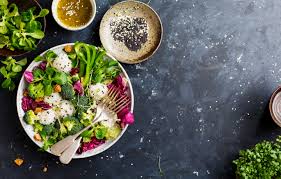Veganism encompasses not only food choices, but also what one does and does not choose to wear or buy new at a store. Vegans are committed to living a life that does not intentionally harm animals or the environment. So no, one partaking in this movement does not buy new leather boots or wool socks. While this is a portion of veganism, this article will strictly talk about the dietary aspect of this lifestyle and whether it is the right path for you.
There are, of course, several factors that contribute to this low-impact lifestyle, many of which lead to different decisions for different people. Some of these factors include the inability to go vegan due to specific nutritional reasons, a lack of knowledge on how to do it, or simply not wanting to commit to such a life. All of these reasons are understandable, and there is no question that if veganism is not practical in one’s current life, then by all means this person should not feel obligated to do it. If it is possible, however, and the only reason that one is not vegan is because the individual would “miss his or her cheese,” then perhaps it might be a good idea to reconsider this decision.
As with any diet, there are positives and negatives that accompany it. If you are someone who already has difficulties finding sufficient food that keeps you healthy and full, due to allergies or anything else that limits what you are able to consume, then this path might not be a realistic choice. To the people who are able to go vegan, I strongly suggest you try. Veganism is not easy, but as with anything, the more you put in, the more you get out.
Veganism requires more effort than many other food rituals. In today’s society, children grow up with the idea that the only way to get adequate amounts of protein is through meat, that calcium is only in milk, and that without seafood, one is doomed to be deficient in vitamin B12. Let me be the one to tell you that in each of these statements lies a myth. It is entirely possible to thrive on a plant-based diet. Why? Because veganism is not about restricting, it is about replacing. Supplement your meat for beans and rice to get great portions of yummy protein. Rather than gulping down a desperate cow’s milk, eat a handful of roasted almonds, a juicy orange, or dark and delicious leafy greens. Swap out clams for fortified cereals and vegan spreads. This diet is not one that leaves people feeling famished and lightheaded, but rather one that lets animals and humans alike thrive and prosper.
Science repeatedly shows us that those conducting a vegan life live healthier and longer lives than those who do not. The simple reason for this is that we are not meant to consume animal products. Our biology is vastly closer to that of herbivores than omnivores. To this, you may say: “Well our ancestors ate meat. It is what we have been doing since the beginning.” This is true, however, times are rapidly changing, and we are no longer living in an era in which we have no other option than to tear animals apart and slit their throats for our own ease and consumption. We are alive during a time in which this act is immoral and inhumane. Eating animal products, whether it be meat or dairy, has horrifying effects on both innocent animals and this beautiful Earth in which we live. So, simply because it is easier to take another’s life for your own pleasure, does that make it morally right? Just because we can does not mean we should. I cannot answer for you whether veganism can work for you at this point in your life, but do not rule it out merely because it is easier not to go vegan, or because you would miss the food another animal unwillingly died for you to have. If nothing else, I ask that you take the time to know where your food is coming from. Know how it got on your plate, and do not shy away from the knowledge of the industries you are actively partaking in through consuming animal products. At the very least, educate yourself and those you share your meals with.

